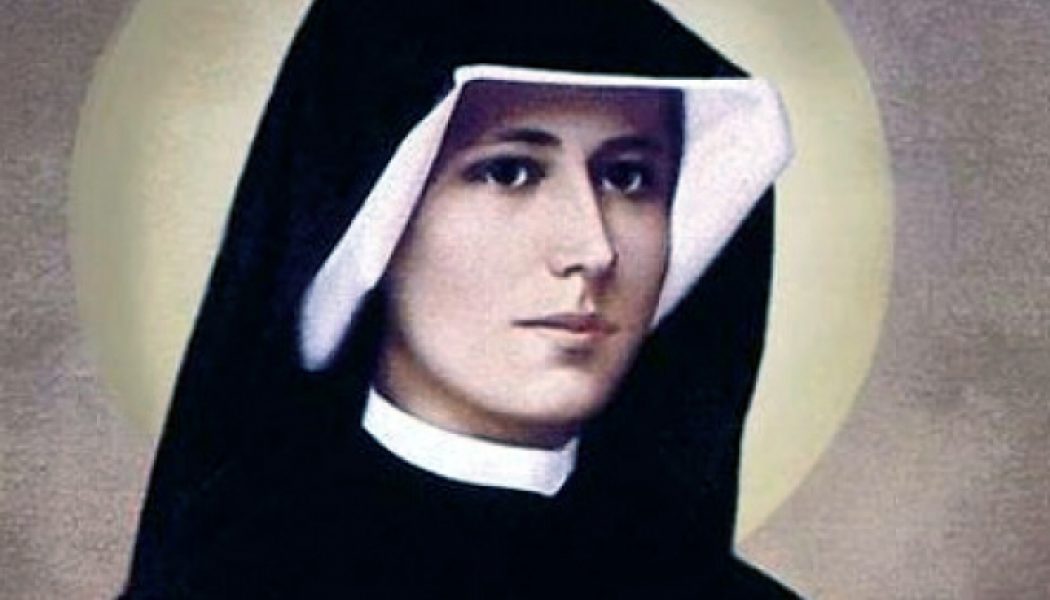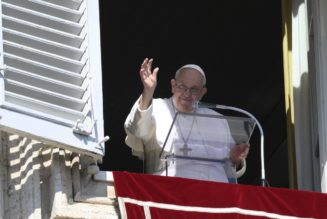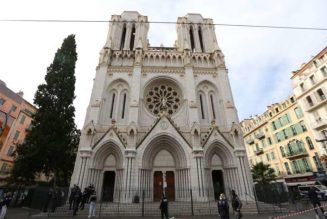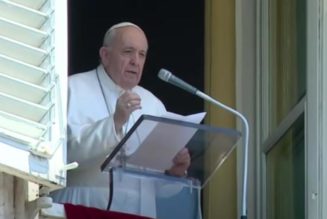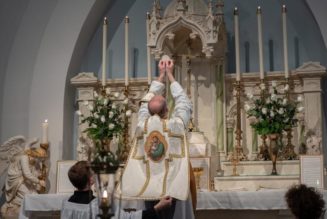
Pope Francis Adds St. Faustina Kowalska’s Feast Day to Roman Calendar
Between 1934 and her death in 1938, St. Faustina recorded her conversations with Jesus in a diary that was later published in dozens of languages and led to the worldwide spread of the Divine Mercy devotion.
VATICAN CITY — Pope Francis has decreed that St. Faustina Kowalska’s feast day be added to the Roman Calendar as an optional memorial to be celebrated by all on October 5.
The Vatican Congregation for Divine Worship issued the decree May 18, the 100th anniversary of the birth of St. John Paul II, who canonized St. Faustina on April 13, 2000, making her the first saint of the new millennium.
The decree said that Pope Francis had taken the step in response to petitions from pastors, religious men and women and associations of the faithful, and “having considered the influence exercised by the spirituality of St. Faustina in different parts of the world.”
It said that he had therefore “decreed that the name of St. Maria Faustina (Helena) Kowalska, virgin, be inscribed in the General Roman Calendar and that her optional memorial be celebrated by all on 5 October.”
Between 1934 and her death in 1938, St. Faustina recorded her conversations with Jesus in a diary that was later published in dozens of languages and led to the worldwide spread of the Divine Mercy devotion.
The decree, signed by the Congregation’s prefect Cardinal Robert Sarah and secretary Archbishop Arthur Roche, emphasized St. Faustina’s impact on the global Church.
It said: “Born in the village of Głogowiec, near Łódź, in Poland in 1905, and dying in Krakow in 1938, St. Faustina spent her short life amongst the Sisters of Our Lady of Mercy, generously conforming herself to the vocation she received from God and developing an intense spiritual life, rich in spiritual gifts and in faithful harmony with them.”
“In the Diary of her soul, the sanctuary of her encounter with the Lord Jesus, she herself recounts what the Lord worked in her for the benefit of all: listening to Him who is Love and Mercy she understood that no human wretchedness could measure itself against the mercy which ceaselessly pours from the heart of Christ. Thus she became the inspiration for a movement dedicated to proclaiming and imploring Divine Mercy throughout the whole world.”
The decree continued: “Canonized in the year 2000 by St. John Paul II, the name of Faustina quickly became known around the world, thereby promoting in all the parts of the People of God, Pastors and lay faithful alike, the invocation of Divine Mercy and its credible witness in the conduct of the lives of believers.”
On April 19, Pope Francis celebrated Divine Mercy Sunday at Santo Spirito in Sassia, a church a short walk from St. Peter’s Basilica. The Mass marked the 20th liturgical anniversary of St. Faustina Kowalska’s canonization and the official institution of the feast of Divine Mercy Sunday by St. John Paul II.
John Paul II’s life was intimately connected to the Divine Mercy devotion. He died April 2, 2005, the vigil of Divine Mercy Sunday. He was beatified on Divine Mercy Sunday in 2011 and canonized on Divine Mercy Sunday in 2014.
Last October Pope Francis authorized a similar decree stating that the optional memorial of Our Lady of Loreto should be inscribed in the Roman Calendar and celebrated every year on December 10.
